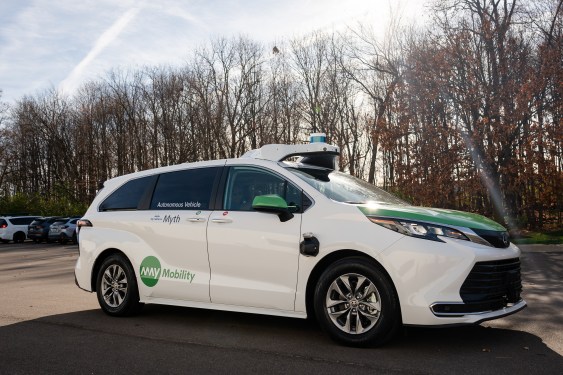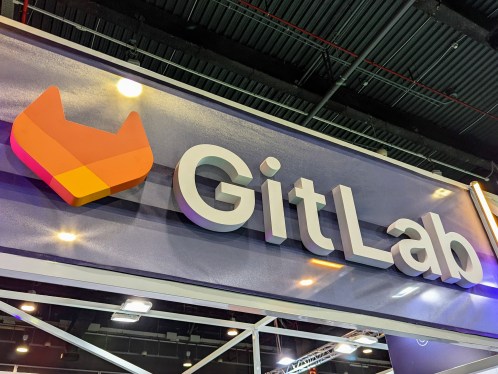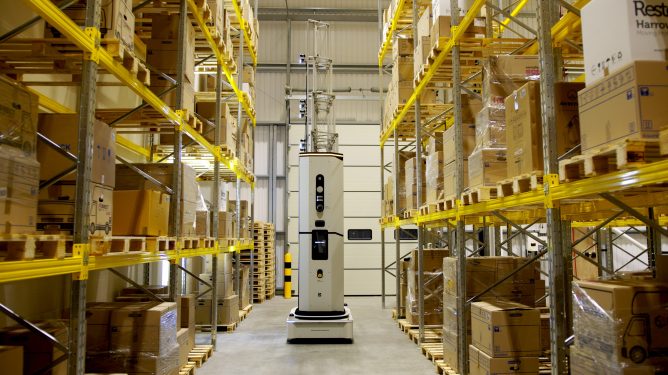Posted: 10:59 AM PST · November 20, 2024
May Mobility is making steady progress in its development of autonomous vehicles. The startup has announced the launch of a small-scale deployment of driverless shuttles, which will operate without the presence of a human safety driver.
Overview of May Mobility’s Driverless Testing
May Mobility’s driverless testing program involves deploying autonomous vehicles to ferry employees and invited guests across a designated area. In this case, the startup has selected Ann Arbor as its second location for conducting such tests. The deployment will consist of one to two autonomous Toyota Sienna minivans operating within a 2-square-mile radius.
This is not May Mobility’s first foray into driverless testing. The company had previously initiated similar operations in Sun City, Arizona, where it tested its technology with a safety driver present. This recent development marks an important milestone in the company’s efforts to advance its autonomous capabilities.
Benefits of Driver-Out Operations
May Mobility co-founder and CEO Edwin Olson highlighted the significance of launching "driver-out" operations in a second city within under a year, stating that it demonstrates the scalability of their technology. By expanding testing to a new location, the startup is able to fine-tune its system for handling challenging weather conditions, increased speeds, and busy traffic.
Expansion Plans for 2025
May Mobility aims to expand its driverless testing program in 2025 to Peachtree Corners, Georgia. The city will serve as an additional location where the company’s autonomous vehicles can be put through their paces without a safety driver present. The startup’s ultimate goal is to refine its technology for seamless integration into existing transportation infrastructure.
Partnership with Lyft
May Mobility has also announced plans to bring its autonomous vehicles onto the Lyft app in Atlanta next year as part of a multi-year partnership between the two companies. This collaboration will enable users to access driverless rides, marking an important step towards mainstream adoption of autonomous technology.
Update on May’s Driverless Operations in Ann Arbor
This article has been updated to provide more information regarding the scope of May Mobility’s driverless operations in Ann Arbor. The deployment is initially limited to a small area and will involve ferrying employees and invited guests between designated locations.
Autonomous Vehicles: A Growing Industry
The development of autonomous vehicles represents one of the most significant technological advancements in recent years, with numerous startups and established companies vying for dominance in this emerging market. With each passing day, we see improvements in safety features, navigation systems, and overall performance. May Mobility’s efforts to push the boundaries of driverless technology are a testament to the industry’s boundless potential.
Key Players in Autonomous Vehicle Development
While there are several notable players in the autonomous vehicle space, some of the most prominent names include:
- Waymo: A subsidiary of Alphabet Inc., Waymo has been at the forefront of self-driving car development. The company has successfully tested its vehicles on public roads and is now working towards commercial deployment.
- Cruise: Another Alphabet subsidiary, Cruise is a leader in autonomous vehicle technology. The company’s focus on developing Level 5 autonomy (the highest level of autonomy) sets it apart from competitors.
Benefits of Autonomous Vehicles
The benefits of autonomous vehicles are numerous:
- Improved Safety: Self-driving cars can detect potential hazards and respond accordingly, reducing the likelihood of accidents.
- Increased Efficiency: Autonomous vehicles can optimize routes and reduce traffic congestion, resulting in lower travel times.
- Enhanced Mobility: For individuals with disabilities or impaired mobility, autonomous vehicles offer greater independence.
May Mobility’s commitment to advancing driverless technology is an essential step towards realizing these benefits. As the company continues to push the boundaries of what is possible, we can expect significant improvements in safety, efficiency, and overall user experience.
Additional Details on May Mobility’s Driverless Testing
- Partnerships: May Mobility has partnered with various organizations to further its research and development efforts.
- Regulatory Frameworks: The company works closely with regulatory bodies to ensure compliance with evolving standards for autonomous vehicles.
- Public Awareness: May Mobility engages in public outreach initiatives to educate the community about the benefits and potential of driverless technology.
Conclusion
May Mobility’s decision to launch driverless testing in Ann Arbor represents a significant milestone in the development of autonomous vehicles. As we move forward, it is essential to prioritize continued innovation, regulatory cooperation, and public education to ensure seamless integration of driverless technology into our daily lives.
Related Stories
- Biotech & Health: Google’s X Spins Out Heritable Agriculture, a Startup Using AI to Improve Crop Yield: Brian Heater’s latest article discusses the emergence of a new startup focused on using AI for crop yield improvement.
- Transportation: Autonomous Vehicle Testing in California Dropped 50%. Here’s Why.: Kirsten Korosec explores the factors contributing to a significant decline in autonomous vehicle testing in California.
These stories offer valuable insights into the rapidly evolving landscape of transportation and technology, highlighting both successes and challenges that need attention from industry leaders and policymakers alike.
Stay up-to-date on the latest developments by subscribing to our newsletter.












